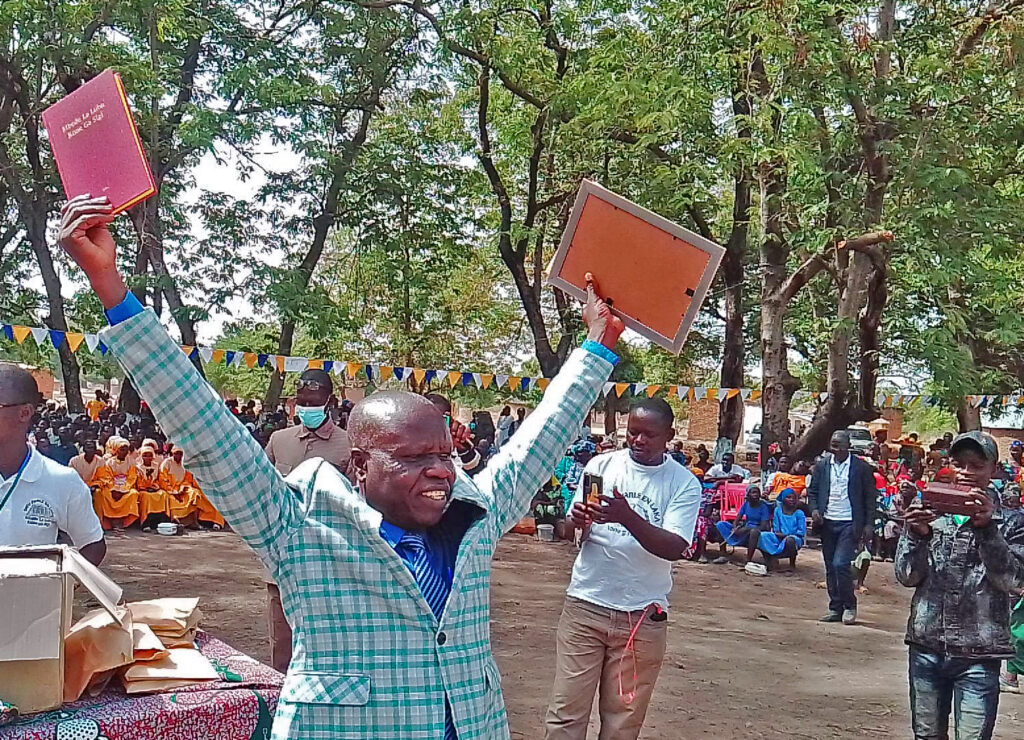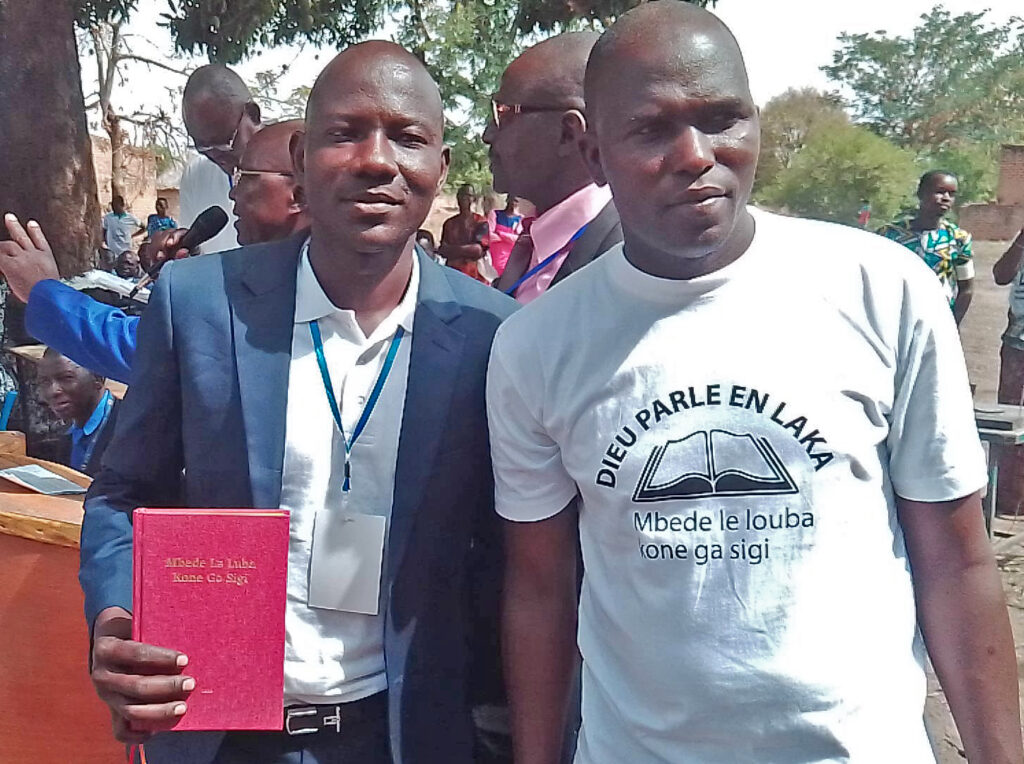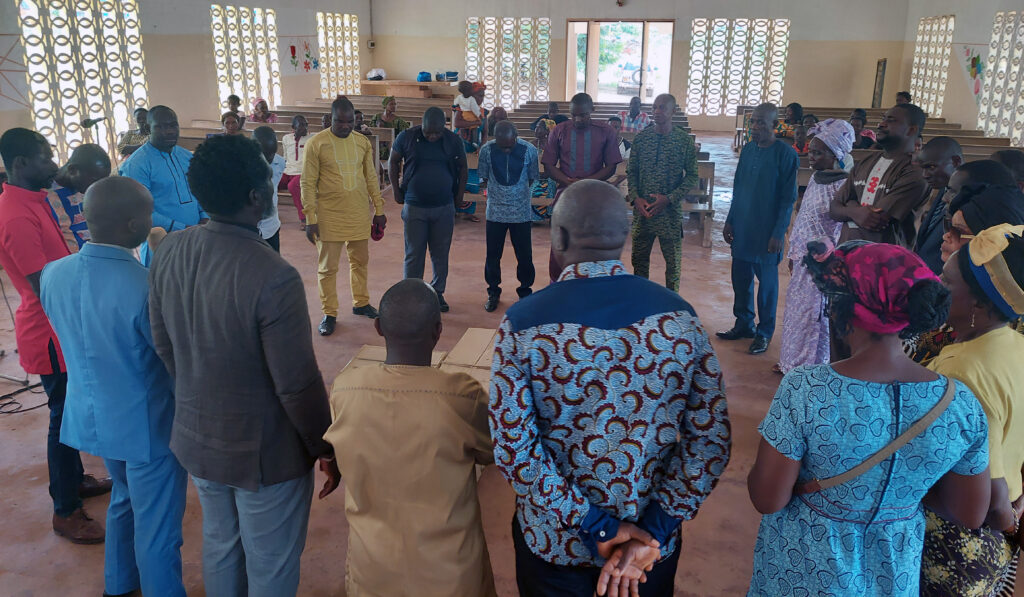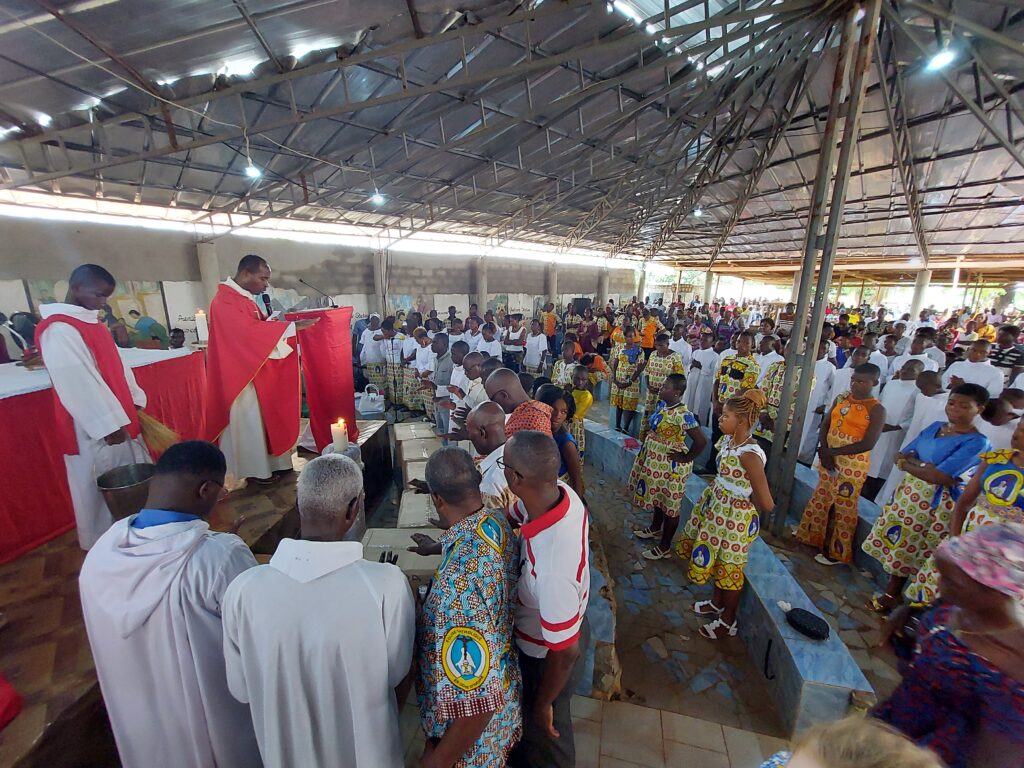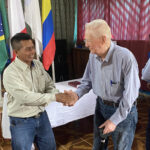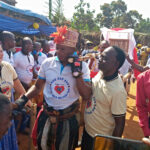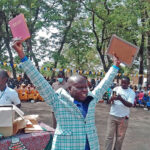The Difference Between Stopping and Being Under a Truck
Ndonam Caleb and the Bible translators in Chad, Africa, are this week’s “Faces of the Campaign” for our Whatever It Takes 2023 Campaign. Learn more about the campaign here and read last week’s “Face of the Campaign” article about Lenny.
It Brings Them Joy
Of the more than the 130 languages spoken in Chad, Africa, the majority still do not have the Word of God. Because of the work of ATALTRAB, a local Bible translation organization, about 12 languages now have the whole Bible, and 26 have the New Testament.
The lack of good roads often makes it difficult to reach these people with the gospel. “Sometimes, there are roads that can give access to certain communities, but in other communities, there are no roads, only tracks,” Ndonam Caleb, the director of ATALTRAB, said.
Other communities can be reached only with wagons. In one such area, during the rainy season, the wagon overturned, and the Bible translation team fell into the river.
To help ease some of these burdens for the ATALTRAB staff members, JAARS provided them with a four-wheel drive vehicle and 10 motorcycles about a year ago—thanks to people like you giving to Land Ops.
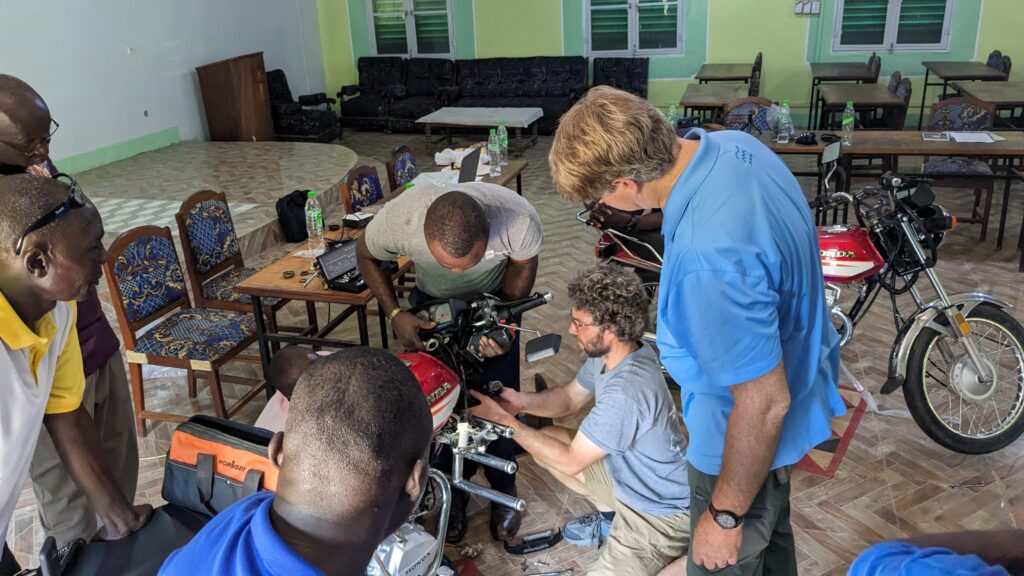
ATALTRAB’s translators have been using the vehicle and motorcycles to share the gospel with 10 language groups, and the vehicles are making a difference! “With this vehicle [and motorcycles], the distance is reduced,” Ndonam said. “We can easily reach the communities to share the Word of God and to involve them in the Bible translation and literacy programs.”
When the people see ATALTRAB arriving in the vehicle or on motorcycles, it brings them joy because, in many places, a vehicle had never come to their community before. It shows them that they matter and are important to God.
The Difference That Brakes Can Make
A few weeks ago, JAARS sent a team of Land Operations trainers to Chad to teach these translators how to ride and maintain motorcycles. John Pepper, a trainer stationed at our JAARS Base, was joined by Grant Sahl and Emmanuel Lotum, two mechanics who work in the Transportation department at the SIL-Cameroon’s Base. Grant had taken the 4WD and motorcycle course at JAARS last year to prepare him to instruct others.
“The training at JAARS was a lot of fun,” Grant remarked. “And it made the training over in Chad a lot easier because I already knew what John was going to [teach].”
Because the translators had been using the motorcycles for a year and knew how to operate them, the instructors focused on maintenance.
“The guys jumped right in,” John said of the translators. “They were sitting on the ground getting their hands dirty. They pulled tires off the motorcycles and changed the oil. They really seemed like they wanted to learn this because they knew that it was going to help their motorcycles last. And that makes a huge difference in their lives on a daily basis.”
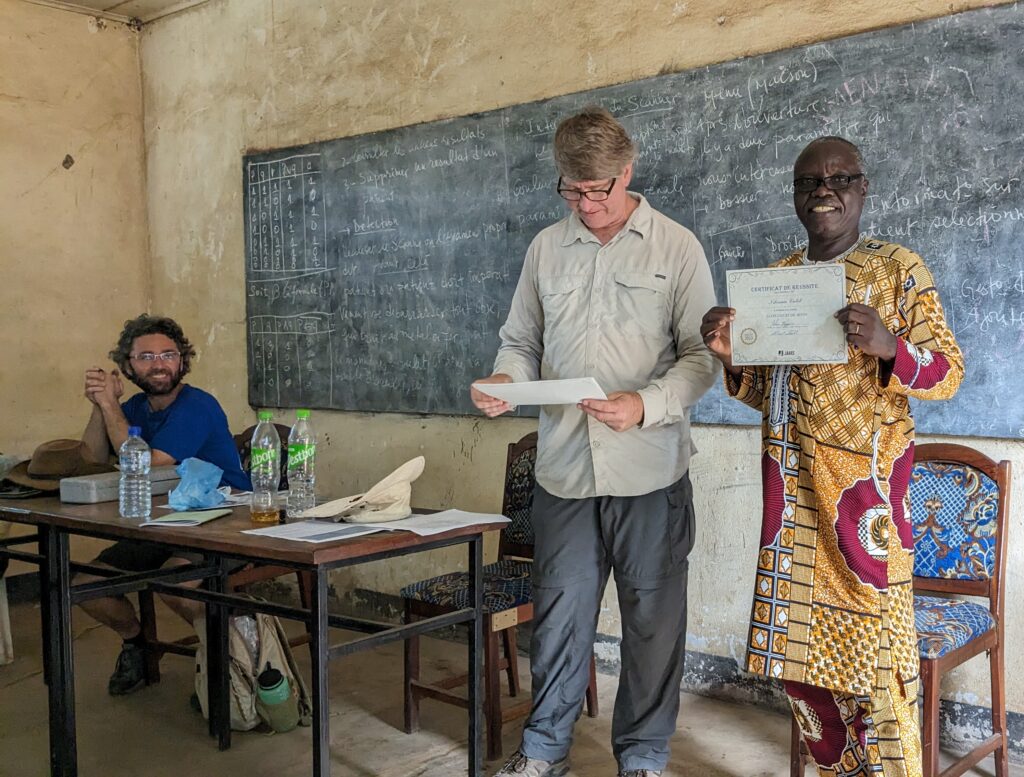
Most people who ride motorcycles in Africa only use the back brake, even though the front brake is 70% of a rider’s stopping force.
To illustrate this, the instructors drew a line on the ground, and then one of them rode at high speed, stopping with just the back brake. Then the instructor repeated the action, this time stopping with both the front and back brakes. The trainees could see the difference—usually three or four bike lengths! “When they saw that,” John said, “they realized it’s the difference between stopping and being under a truck.”
The translators hadn’t realized they could stop so fast; now they can ride much more safely. Chad’s roads pose a variety of hazards—trucks, motorcycles, animals, potholes—so stopping in time makes a huge difference.
The translators soon put their knowledge to the test because right after the course, two of them traveled 430 miles back to their village, where they translate. “They are dedicated and are using those bikes to their full extent,” Grant said.
Whatever It Takes
These translators are doing whatever it takes to reach the people in Chad with the gospel. Not only do they face difficult road conditions, but also persecution by followers of a major world religion.
One translator had turned from the major world religion and become a Christian. His family disowned him, other people accused him of killing his parents, and some people came to his village to harm Christians. Even amidst all this, he continues to translate and lead people to Christ, and God has grown his church to 300 believers!
Another translator is the youngest man in his church and also serves as its pastor. Many people ask him for biblical counsel because he’s one of the few Christians in his community who has access to the Bible. He’s working tirelessly to translate the New Testament so the people can have access to Scripture.
We rejoice that your partnership enables us to ease at least a few of the burdens our co-laborers encounter in this difficult place as they share the gospel.
One translator said, “The motorcycle does a great service, and without [it], the work would be impossible. I pray that the Lord may put it on your heart to help not only our project or our organization, but other organizations around the world who need these means.”
More Land Operations training trips are planned for later this year in Africa. Give to Where Needed Most so we can continue to ease these burdens for our brothers and sisters and partner with them to deliver God’s Word!



























































